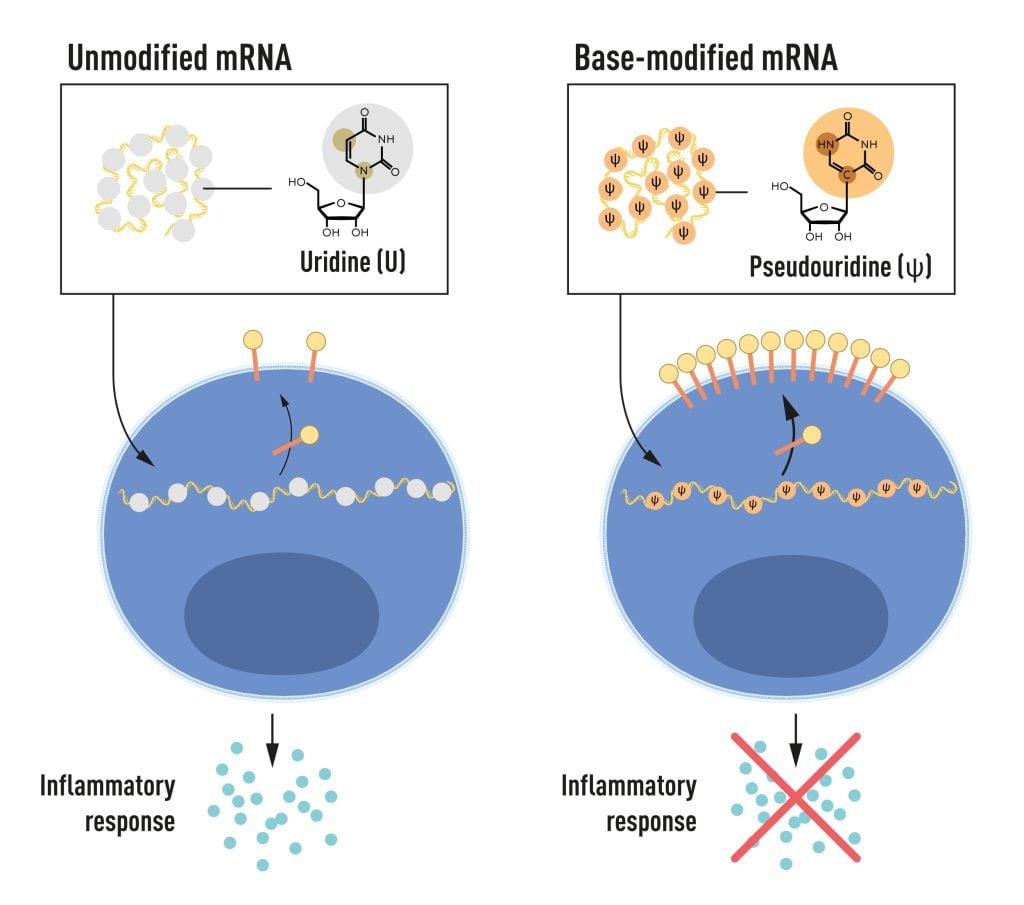The 2023 Nobel Prize in Physiology or Medicine went to Katalin Kariko and Drew Weissman. The awardee’s work led to the development of COVID-19 vaccines that prevented millions of deaths around the world. He Nobel Prize Press Release describes the scientific breakthrough in more detail:
Karikó and Weissman observed that dendritic cells recognize mRNA transcribed in vitro as a foreign substance, leading to their activation and the release of inflammatory signaling molecules. They wondered why mRNA transcribed in vitro was recognized as foreign, while mRNA from mammalian cells did not give rise to the same reaction. Karikó and Weissman realized that some critical properties must distinguish different types of mRNA.
RNA contains four bases, abbreviated A, U, G and C, which correspond to A, T, G and C in DNA, the letters of the genetic code. Karikó and Weissman knew that the bases of RNA from mammalian cells are often chemically modified, while mRNA transcribed in vitro is not. They wondered whether the absence of altered bases in the in vitro transcribed RNA could explain the unwanted inflammatory reaction. To investigate this, they produced different mRNA variants, each with unique chemical alterations in their bases, which they delivered to dendritic cells. The results were surprising: the inflammatory response was almost abolished when base modifications were included in the mRNA. This was a paradigm shift in our understanding of how cells recognize and respond to different forms of mRNA. Karikó and Weissman immediately understood that their discovery had profound importance for the use of mRNA as therapy. These pivotal results were published in 2005, fifteen years before the COVID-19 pandemic.

In additional studies published in 2008 and 2010, Karikó and Weissman demonstrated that delivery of mRNA generated with base modifications markedly increased protein production compared to unmodified mRNA. The effect was due to reduced activation of an enzyme that regulates protein production. Thanks to their discoveries that base modifications reduced inflammatory responses and increased protein production, Karikó and Weissman had removed critical obstacles on the path to clinical applications of mRNA.
The NY Times coverage is here.








